Program Overview and Curriculum
1. Rotations
Select a unit below to learn more.
Surgical/Trauma Intensive Care Unit (Nine Months)
Nine months of the fellowship program will be devoted to rotating in the trauma intensive care unit (TICU) and the surgical intensive care unit (SICU) where fellows will become competent in the skills required to function as a surgical intensivist. Fellows are exposed to a wide variety of trauma and general surgery (emergency general surgery, vascular, transplant, bariatric, hepatobiliary, urology, plastic surgery, ENT) pathology with patients of high complexity and acuity. There is also a close working relationship with neurosurgery and orthopedic divisions. Each of these units is staffed by a double-board certified surgical intensivist on a weekly basis (seven days).
Fellows will be supervising a combination of surgical house-staff; rotating house-staff from the departments of anesthesiology, emergency medicine, neurosurgery and orthopedics, as well as physician extenders (physician assistants and nurse practitioners).
Fellows are expected to function at the level of a junior attending and will be responsible for leading daily multidisciplinary work rounds, creating daily care plans and goals for individual patients and supervision of house staff and physician extenders and the performance of all bedside procedures (including bronchoscopies, tracheostomies, chest tubes, arterial lines, pulmonary artery catheterization and central venous line catheterizations). Cases such as open tracheostomies and percutaneous endoscopic gastrostomies are expected to be staffed by the fellow taking junior residents through the procedures. The ultimate goal is for the fellow to learn how to manage and direct a surgical intensive care unit.
The duties of the fellow on-call will be serving as the trauma team leader for the trauma activations and performing operative acute care surgery and trauma cases at the level of a junior attending/teaching assistant.
Cardiothoracic Intensive Care Unit (Two Weeks)
Two weeks of the fellowship program will be devoted to rotating through the Cardiothoracic Intensive Care Unit (CTICU) at Westchester Medical Center. The CTICU allows the surgical critical care fellows the opportunity to concentrate on mastering core principles of cardiovascular physiology and pathophysiology. In this unit, fellows are exposed to advanced modes of cardiac/pulmonary-specific critical care support such as extracorporeal membrane oxygenation, management of ventricular assist devices and intra-aortic balloon pumps. The unit is staffed by exceptional cardiothoracic surgeons with highly trained critical care nurses, physician extenders and rotating house staff.
Operative Experience
The fellowship incorporates operative experiences throughout the year. Fellows will take junior attending call where they will take junior residents through a wide range of operative cases such as trauma laparotomies, thoracotomies, surgical stabilization of rib fractures as well as emergency general surgery procedures including exposure to robotic surgery. Our dual board-certified faculty is in-house 24 hours a day and operating whenever necessary. Fellows will have the opportunity to cannulate and manage patients for VA and VV ECMO as well as a robust experience with endoscopy/bronchoscopy, tracheostomies, feeding tube access as well as invasive lines/chest tubes.
Burn Surgery Intensive Care Unit (Two Weeks)
The Westchester Burn Unit is the region’s only burn center caring for both adult and pediatric burn victims. The unit is staffed by board certified burn/critical care surgeons specializing in plastic and reconstructive surgery. In addition to the specialized critical care of burn victims, fellows will be exposed to wound care (including performance of escharotomies, debridement, skin grafts and reconstruction) and burn prevention. The unit is staffed by highly trained critical care nurses, physician extenders and rotating house staff.
eHealth Program: Critical Care and Trauma Telemedicine (Two Weeks)
Westchester Medical Center Health Network has an advanced eHealth Program that uses the latest technology to monitor critically ill adult patients, regardless of where they are within our hospital network. The eHealth center is staffed by board certified intensivists and critical care nurses who provide patient-centered and quality-driven support. The eICU technology is driven by APACHE IV (Phillips), which is a severity-adjusted methodology that predicts outcomes for critically ill adult patients.
The eHealth Program has taken telemedicine one step further and has created a consultation program for trauma patients across the Westchester Medical Center Health Network. The evaluation of trauma patients via telemedicine allows for our trauma team to guide the management of trauma patients remotely in order to care for patients at their respective facilities, expedite and guide the transfer process and initiate treatment before and during the transfer process.
Anesthesia (Two Weeks)
Two weeks of the fellowship program will be devoted to rotating through the Anesthesia service at Westchester Medical Center. The Anesthesia service allows the surgical critical care fellows the opportunity for numerous intubations (easily meeting surgical critical care board requirements) as well as in-depth learning of anesthesia physiology and medications. Fellows will also be exposed to advanced techniques such as performance and interpretation of transesophageal echocardiography. Knowledge and skills gained during this rotation will be invaluable during other ICU rotations and the care of critically ill patients. There will be ample opportunities to care for intensive intraoperative management of patients such as those seen during transplant, cardiothoracic and neurosurgical procedures.
2. Didactic Curriculum
2a. This fellowship has a robust didactic curriculum. On a daily basis, attending surgeons, fellows, house staff, medical students and allied health professionals attend morning report conference. During daily morning report, which is focused on the experience of the previous 24-hour call, consults, cases and overnight events are presented by house-staff for quality improvement purposes as well as education. Faculty actively teach house staff and fellows during these sessions with respect to surgical decision making, operative technique, perioperative management and surgical critical care decision making.
2b. Weekly departmental academic grand rounds along with departmental morbidity and mortality conferences, as well as Trauma Program Operational Committee/Performance Improvement & Patient Safety (TPOC/PIPS) also provide opportunities for learning. The ultimate goal is to teach fellows how to run a trauma program and surgical intensive care unit.
2c. A weekly ACS/Trauma/Critical Care lecture series is held where landmark papers are presented and discussed in a multidisciplinary fashion with protected time for fellows. In addition, there is a weekly didactic session covering a variety of topics in surgical critical care including lectures by our expert colleagues in other fields (orthopedics, neurosurgery, nephrology, infectious disease, etc.) A variety of textbooks designed for critical care board preparation are used. Fellows will be expected to participate in these weekly didactics, including a journal club aimed at covering landmark critical care papers.
2d. Fellows will also have the ability to prepare lectures during the course of the year to teach and present at these sessions which are directed towards the education of surgical residents. This is a chance for fellows to have the experience as educators for residents during Monday morning lecture series.
2e. Several times throughout the year, a hands-on Resuscitative Endovascular Balloon Occlusion of the Aorta (REBOA) course is held. A critical care ultrasonography course with a state-of-the-art simulator is offered with potential for SCCM critical care ultrasound certification. In conjunction with New York Medical College, a cadaver-based course teaching operative exposures for trauma is performed yearly with trauma faculty instructing fellows and chief residents.
3. Journal Club
The Department of Surgery holds a monthly journal club at a local restaurant for all house staff, fellows, faculty and allied health professionals. The Surgical Critical Care fellows are expected to attend and participate. In addition, the Division of Trauma, Burns, Surgical Critical Care and Emergency General Surgery holds a monthly journal club focused on critical care during which fellows are expected to review assigned articles for presentation. The Critical Care journal club is an invaluable component of the fellowship experience because it hones critical reasoning and thinking skills, encourages on-going review of the most current advances in evidence-based medicine, and fosters a collegial environment amongst all critical care providers.
In addition, our division participates in weekly International Trauma Tele-Grand Rounds, during which major trauma centers around the world present complex and interesting trauma cases. This virtual conference allows the opportunity to see how other centers with limited resources can manage difficult cases. Fellows will be expected to participate and present cases on a rotational basis.
4. Research
The section of Trauma, Emergency General Surgery and Surgical Critical Care has a robust research program as part of the overall mission of research and innovation of the Department of Surgery, focusing on trauma and acute care surgery clinical outcomes, translational research and injury prevention. A list of sample recent publications and presentations from national and international meetings can be seen below. A strong research infrastructure in the form of the Department of Surgery Clinical Research Unit (DSCRU) directed by a full-time clinician researcher and supported by epidemiologists, statisticians, full-time research coordinators and international research scholars to assist the research process. This begins with formulation of research questions, grant writing and IRB submissions, and culminating with manuscript preparation. This infrastructure allows fellows, faculty and residents to design and implement clinical studies, and to report findings in leading trauma and surgical journals, in addition to presenting at national and international meetings.
All fellows will be assigned a research mentor for the duration of the fellowship and will choose a research project with the expectation that research performed will lead to the publication and presentation of innovative research. All fellows will have the opportunity to attend a major national meeting to present their accepted poster or podium presentations.
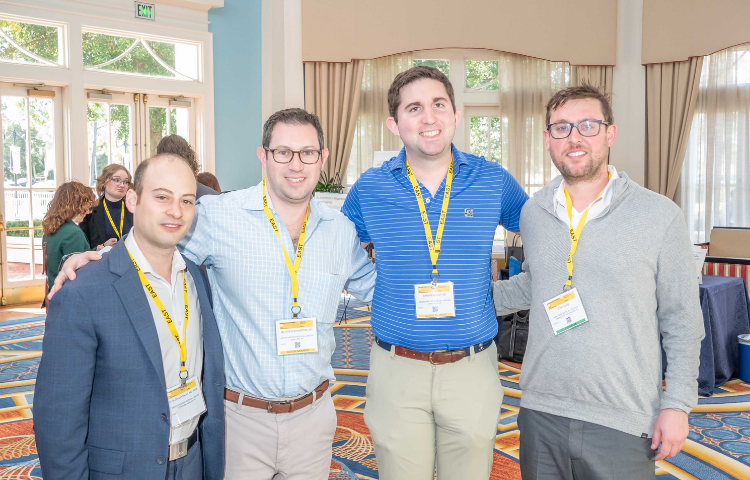
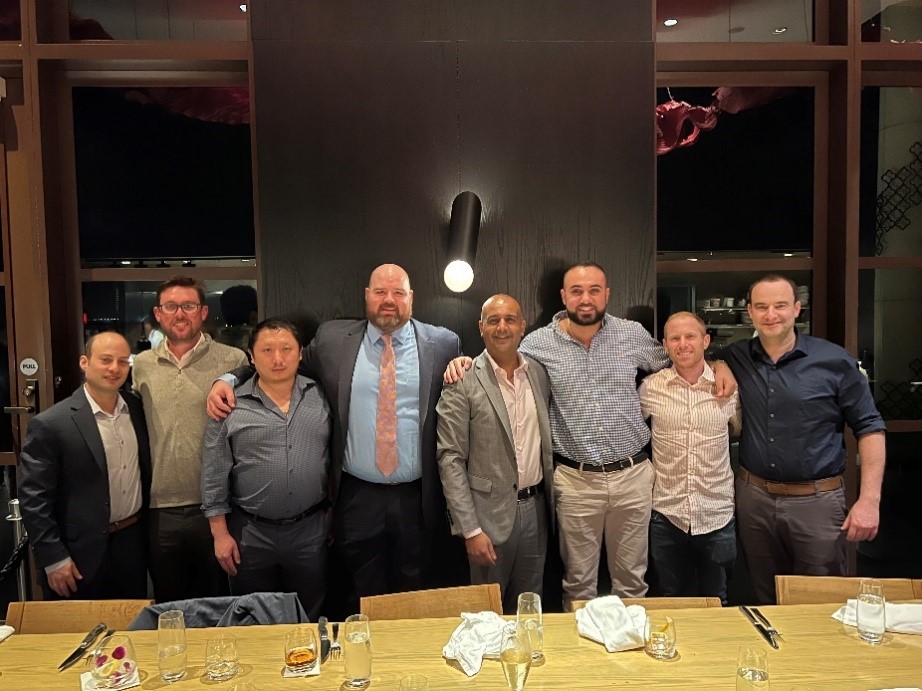
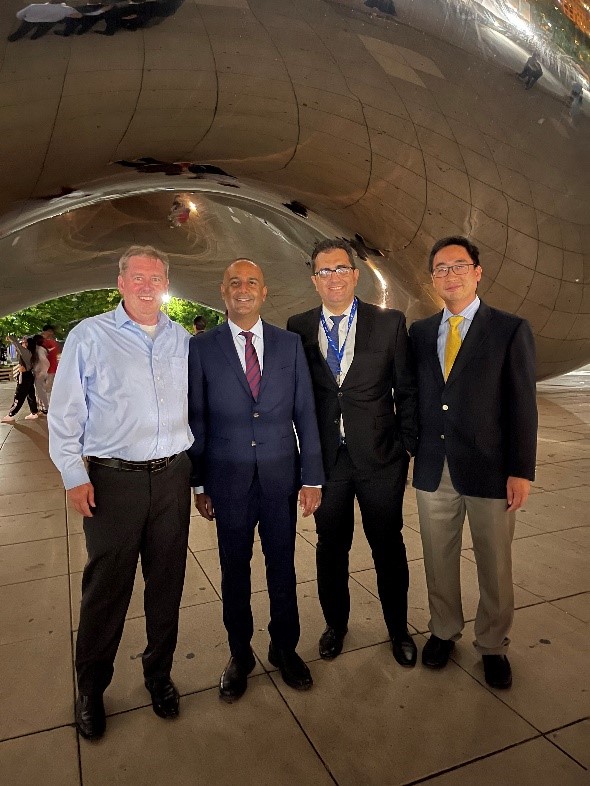
5. International Trauma Research Fellowship
Along with the Department of Surgery Clinical Research Unit (DSCRU), an international trauma research fellowship has been started in 2022. The research fellow will attend all scheduled morning report sessions and morbidity/mortality conferences and work together with the trauma team to perform research using our trauma database as well as national databases (TQIP, NTDB, NRD, etc.) to advance evidence-based trauma care and present work at regional, national and international conferences. Trauma/Surgical Critical Care fellows will be able to work collaboratively with the Trauma Research fellow to help prepare papers for presentation.
6. Research Portfolio
The Department of Surgery Clinical Research Unit (DSCRU) will be a catalyst to enhance the research activity of the Department. It provides the forum for research support for faculty, residents and fellows through a number of initiatives and programs that utilize hospital databases, the institutional trauma registry and national databases. Three dedicated biostatisticians are available to help with complex statistical analysis. Areas of research include:
|
Geriatric Surgery and Trauma
|
Geriatric Emergency General Surgery
|
|
Complex Abdominal Wall Reconstruction
|
Transplant Surgery
|
|
Necrotizing Soft Tissue Infections
|
Vascular Surgery
|
|
Massive Transfusion Protocol
|
Nutrition Support of Trauma and Critically Ill Patients
|
7. Recent Books
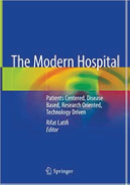
The Modern Hospital:
Patients Centered, Disease Based, Research Oriented, Technology Driven
Editor: Rifat Latifi
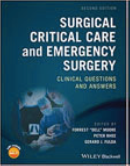
Surgical Critical Care and Emergency Surgery:
Clinical Questions and Answers
Editors: Forrest “Dell” Moore, Peter Rhee, Gerard J. Fulda
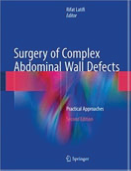
Surgery of Complex Abdominal Wall Defects:
Practical Approaches
Editor: Rifat Latifi
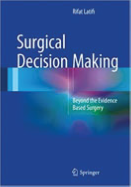
Surgery Decision Making:
Beyond the Evidence Based Surgery
Editor: Rifat Latifi
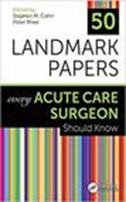
50 Landmark Papers:
Every Acute Care Surgeon Should Know
Editor: Peter Rhee
Manuscripts Published in Peer-Reviewed Journals 2018-2020
1. Angeles C, Lombardo G, Prabhakaran K, Con J. Retained piece of glass in pleural cavity: Is chest X-ray enough? Am Surg. 2018;84(11):e448-e450.
2. Angelos G, Dockter AG, Gachabayov M, Latifi R, Bergamaschi R. Emergency colorectal surgery in a COVID-19 pandemic epicenter. Surg Technol Int. 2020;36:18-21.
3. Azevedo V, Latifi R, Parsikia A, Latifi F, Azevedo A. Cabo verde telemedicine program: An update report and analysis of 2,442 teleconsultations. Telemed J E Health. 2020.
4. Bateman RM, Sharpe MD, Jagger JE, et al. 36th international symposium on intensive care and emergency medicine : Brussels, belgium. 15-18 march 2016. Crit Care. 2016;20(Suppl 2):94-016-1208-6.
5. Choi J, Gogna S, Rozenblit G, Latifi R. Hybrid surgical management for massive splenomegaly in a septuagenarian for chronic myelofibrosis. Am Surg. 2020;86(4):e175-e176.
6. Coccolini F, Roberts D, Ansaloni L, et al. The open abdomen in trauma and non-trauma patients: WSES guidelines. World J Emerg Surg. 2018;13:7-018-0167-4. eCollection 2018.
7. Con J, Zarain L, Gogna S, et al. A novel tool to evaluate bias in literature on use of biologic mesh in abdominal wall hernia repair. Hernia. 2020;24(1):23-30.
8. Di Saverio S, Podda M, De Simone B, et al. Diagnosis and treatment of acute appendicitis: 2020 update of the WSES jerusalem guidelines. World J Emerg Surg. 2020;15(1):27-020-00306-3.
9. Diaconescu B, Uranues S, Fingerhut A, et al. The bucharest ESTES consensus statement on peritonitis. Eur J Trauma Emerg Surg. 2020.
10. Doarn CR, Latifi R, Poropatich RK, et al. Development and validation of telemedicine for disaster response: The north atlantic treaty organization multinational system. Telemed J E Health. 2018;24(9):657-668.
11. Duchesne J, Costantini TW, Khan M, et al. The effect of hemorrhage control adjuncts on outcome in severe pelvic fracture: A multi-institutional study. J Trauma Acute Care Surg. 2019;87(1):117-124.
12. El-Menyar A, Abuzaid A, Elbadawi A, McIntyre M, Latifi R. Racial disparities in the cardiac computed tomography assessment of coronary artery disease: Does gender matter. Cardiol Rev. 2019;27(1):14-22.
13. El-Menyar A, Asim M, Latifi R, Bangdiwala SI, Al-Thani H. Predictive value of positive high-sensitivity troponin T in intubated traumatic brain injury patients. J Neurosurg. 2018;129(6):1541-1549.
14. El-Menyar A, Consunji R, Abdelrahman H, Latifi R, Wahlen BM, Al-Thani H. Predictors and time-based hospital mortality in patients with isolated and polytrauma brain injuries. World J Surg. 2018;42(5):1346-1357.
15. El-Menyar A, Consunji R, Asim M, et al. Traumatic brain injury in patients screened for blood alcohol concentration based on the mechanism of injury. Brain Inj. 2019;33(4):419-426.
16. El-Menyar A, Goyal P, Tilley E, Latifi R. The clinical utility of shock index to predict the need for blood transfusion and outcomes in trauma. J Surg Res. 2018;227:52-59.
17. El-Menyar A, Muneer M, Samson D, et al. Correction to: Early versus late intramedullary nailing for traumatic femur fracture management: Meta-analysis. J Orthop Surg Res. 2018;13(1):182-018-0884-0.
18. El-Menyar A, Muneer M, Samson D, et al. Early versus late intramedullary nailing for traumatic femur fracture management: Meta-analysis. J Orthop Surg Res. 2018;13(1):160-018-0856-4.
19. El-Menyar A, Sathian B, Asim M, Latifi R, Al-Thani H. Efficacy of prehospital administration of tranexamic acid in trauma patients: A meta-analysis of the randomized controlled trials. Am J Emerg Med. 2018;36(6):1079-1087.
20. Gachabayov M, Dong XD, Latifi R, Bergamaschi R. Considerations on colorectal cancer care in a COVID-19 pandemic epicenter. Surg Technol Int. 2020;36:148-149.
21. Gachabayov M, Gogna S, Latifi R. En bloc removal of infected hernia mesh rather than "blue-ectomy". Hernia. 2020;24(2):425-426.
22. Gachabayov M, Gogna S, Latifi R, Dong XD. Passive drainage to gravity and closed-suction drainage following pancreatoduodenectomy lead to similar grade B and C postoperative pancreatic fistula rates. A meta-analysis. Int J Surg. 2019;67:24-31.
23. Gachabayov M, Gogna S, Samson D, Latifi R. Does CT scan add any diagnostic value to the evaluation of stab wounds of the anterior abdominal wall? A systematic review and meta-analysis. J Trauma Acute Care Surg. 2020.
24. Gachabayov M, Latifi R. A rule of thumb heuristic in the evaluation of diagnostic value. J Trauma Acute Care Surg. 2020.
25. Gachabayov M, Latifi R. Safety of hernia repairs in the setting of surgical volunteerism missions. Hernia. 2019;23(3):631-632.
26. Gachabayov M, Latifi R. Barium appendicitis: An unusual complication of barium enema. Am Surg. 2019;85(3):e160-e161.
27. Gachabayov M, Latifi R. A lethal cardiac injury inflicted by a nonlethal weapon. J Emerg Trauma Shock. 2019;12(1):72-73.
28. Gogna S, Bergamaschi R, Kajmolli A, et al. Clinicopathologic features and outcome of adenocarcinoma of the anal canal: A population-based study. Int J Surg Oncol. 2020;2020:5139236.
29. Gogna S, Latifi R, Policastro A, et al. Complex abdominal wall hernia repair with biologic mesh in elderly: A propensity matched analysis. Hernia. 2020;24(3):495-502.
30. Gogna S, Lombardo G, Prabhakaran K, Goyal A, Latifi R. Impalement at zone I of neck causing traumatic subclavian arterial compression injury. Am Surg. 2019;85(7):e358-e360.
31. Haider A, Con J, Prabhakaran K, et al. Developing a simple clinical score for predicting mortality and need for ICU in trauma patients. Am Surg. 2019;85(7):733-737.
32. Jabbour G, Lombardo G, Litow K, et al. Bilateral renal artery occlusion after blunt abdominal trauma. Am Surg. 2020;86(4):e210-e212.
33. Jehan F, Zeeshan M, Con J, et al. Metabolic syndrome exponentially increases the risk of adverse outcomes in operative diverticulitis. J Surg Res. 2020;245:544-551.
34. Joseph B, Khan M, Jehan F, Latifi R, Rhee P. Improving survival after an emergency resuscitative thoracotomy: A 5-year review of the trauma quality improvement program. Trauma Surg Acute Care Open. 2018;3(1):e000201.
35. Joseph B, Zeeshan M, Rhee P. Addressing limitations in case-control study of patients undergoing resuscitative endovascular balloon occlusion of the aorta-reply. JAMA Surg. 2019;154(12):1167-1168.
36. Joseph B, Zeeshan M, Sakran JV, et al. Nationwide analysis of resuscitative endovascular balloon occlusion of the aorta in civilian trauma. JAMA Surg. 2019;154(6):500-508.
37. Khan M, Prabhakaran K, Jehan F, et al. Early tracheostomy in patients with cervical spine injury reduces morbidity and improves resource utilization. Am J Surg. 2020.
38. Khan T, Quintana L, Aguilera S, et al. Global health, global surgery and mass casualties. I. rationale for integrated mass casualty centres. BMJ Glob Health. 2019;4(6):e001943-2019-001943. eCollection 2019.
39. Lascano D, Anderson P, Latifi R. Acute gastric posterior wall and gallbladder necrosis after blunt abdominal trauma. Am Surg. 2019;85(1):e34-e35.
40. Latifi R, Doarn CR. Perspective on COVID-19: Finally, telemedicine at center stage. Telemed J E Health. 2020.
41. Latifi R, Olldashi F, Dogjani A, Dasho E, Boci A, El-Menyar A. Telemedicine for neurotrauma in albania: Initial results from case series of 146 patients. World Neurosurg. 2018;112:e747-e753.
42. Latifi R, Parsikia A, Boci A, Doarn CR, Merrell RC. Increased access to care through telemedicine in albania: An analysis of 2,724 patients. Telemed J E Health. 2020;26(2):164-175.
43. Latifi R, Patel AS, Samson DJ, et al. The roles of early surgery and comorbid conditions on outcomes of severe necrotizing soft-tissue infections. Eur J Trauma Emerg Surg. 2019;45(5):919-926.
44. Latifi R, Rivera R, Gachabayov M, et al. Outcomes of 1,327 patients operated on through twelve multispecialty surgical volunteerism missions: A retrospective cohort study. Int J Surg. 2018;60:15-21.
45. Latifi R, Samson DJ, Gogna S, Joseph BA. Perioperative complications of complex abdominal wall reconstruction with biologic mesh: A pooled retrospective cohort analysis of 220 patients from two academic centers. Int J Surg. 2020;74:94-99.
46. Lee H, Prabhakaran K, Krowsoski L, Anderson PL, Lombardo G. When a colonic metal stent is left in for too long: A devastating coloenteric fistula from stent erosion and migration. Am Surg. 2019;85(3):e182-e184.
47. Litow K, Jabbour G, Bahn-Humphrey A, et al. Curative resection of a duodenal gastrointestinal stromal tumor in the setting of von willebrand's disease. J Surg Case Rep. 2020;2020(4):rjaa081.
48. Muneer M, El-Menyar A, Abdelrahman H, et al. Clinical presentation and management of pelvic morel-lavallee injury in obese patients. J Emerg Trauma Shock. 2019;12(1):40-47.
49. Olldashi F, Latifi R, Parsikia A, et al. Telemedicine for neurotrauma prevents unnecessary transfers: An update from a nationwide program in albania and analysis of 590 patients. World Neurosurg. 2019;128:e340-e346.
50. Prabhakaran K, Gogna S, Lombardo G, Latifi R. Venous thromboembolism in geriatric trauma patients-risk factors and associated outcomes. J Surg Res. 2020;254:327-333.
51. Prabhakaran K, Malcom R, Choi J, et al. Open tracheostomy for Covid19 positive patients: A method to minimize aerosolization and reduce risk of exposure. J Trauma Acute Care Surg. 2020.
52. Rickard J, Onwuka E, Joseph S, et al. Value of global surgical activities for US academic health centers: A position paper by the association for academic surgery global affairs committee, society of university surgeons committee on global academic surgery, and american college of surgeons' operation giving back. J Am Coll Surg. 2018;227(4):455-466.e6.
53. Rojas A, Felsenreich DM, Quintero L, et al. Robotic sutured rectopexy for external full-thickness rectal prolapse - a video vignette. Colorectal Dis. 2020.
54. Rojas A, Tewari V, Gachabayov M, Felsenreich DM, Latifi R, Bergamaschi R. Do not snare post-THD pseudopolyps. Tech Coloproctol. 2020;24(5):487-488.
55. Sartelli M, Kluger Y, Ansaloni L, et al. Raising concerns about the sepsis-3 definitions. World J Emerg Surg. 2018;13:6-018-0165-6. eCollection 2018.
56. Singh K, Trinh W, Latifi R, Weaver JD. Correction: An elusive thermal [2 + 2] cycloaddition driven by visible light photocatalysis: Tapping into strain to access C2-symmetric tricyclic rings. Org Biomol Chem. 2019;17(7):2028.
57. Ten Broek RPG, Krielen P, Di Saverio S, et al. Bologna guidelines for diagnosis and management of adhesive small bowel obstruction (ASBO): 2017 update of the evidence-based guidelines from the world society of emergency surgery ASBO working group. World J Emerg Surg. 2018;13:24-018-0185-2. eCollection 2018.
58. Zhang N, Prabhakaran K, Carroll F, Anderson P, Latifi R, Laskowski I. Blunt abdominal aorta, celiac artery, and superior mesenteric artery injuries treated endovascularly. Am Surg. 2019;85(3):e167-e169.
59. Qian S, Vasileiou G, Pust GD…Zeeshan M… et al. Prophylactic Drainage after Appendectomy for Perforated Appendicitis in Adults: A Post Hoc Analysis of an EAST Multi-Center Study. Surg Infect (Larchmt). 2021;22(8):780-786. doi:10.1089/sur.2019.258
60. Marini CP, Petrone P, Soto-Sánchez A, García-Santos E, Stoller C, Verde J. Predictors of mortality in patients with rib fractures. Eur J Trauma Emerg Surg. 2021;47(5):1527-1534. doi:10.1007/s00068-019-01183-5
61. Latifi R. Ventral Hernia Should be Treated Surgically and No One Should Die From It. Surg Technol Int. 2021;39:204-205. doi:10.52198/21.STI.39.HR1513
62. Hamidi M, Asmar S, Bible L, …Hanna K…et al. Early Thromboprophylaxis in Operative Spinal Trauma Does Not Increase Risk of Bleeding Complications. J Surg Res. 2021;258:119-124. doi:10.1016/j.jss.2020.08.029
63. Hanna K, Khurrum M, Joseph B. Authors' reply: Aspirin resistance and blunt cerebrovascular injuries among female patients. J Trauma Acute Care Surg. 2021;90(2):e53-e54. doi:10.1097/TA.0000000000002982
64. Gogna S, Smiley A, French K, Srikumar S, Spielvogel D, Lansman S, Latifi R. Outcomes of Emergency Gastrointestinal Surgery Done on Post-Cardiac Surgery Patients-Analysis From a Tertiary Care Center. Surg Technol Int. 2021;39:120-125. doi:10.52198/21.STI.39.GS1521
65. Wheatley MA, Kapil S, Lewis A, …Rhee P…et al. Management of Minor Traumatic Brain Injury in an ED Observation Unit. West J EM. 2021;22(4):943-950.
66. Kulvatunyou N, Bauman ZM, Zein Edine SB, …Rhee P. The small (14 Fr) percutaneous catheter (P-CAT) versus large (28-32 Fr) open chest tube for traumatic hemothorax: A multicenter randomized clinical trial. J Trauma Acute Care Surg. 2021;91(5):809-813. doi:10.1097/TA.0000000000003180
67. Roberts DJ, Faris PD, Ball CG, …Rhee P…et al. Variation in use of damage control laparotomy for trauma by trauma centers in the United States, Canada, and Australasia. World J Emerg Surg. 2021;16(1):53. Published 2021 Oct 14. doi:10.1186/s13017-021-00396-7
68. McGuirk M, Abouezzi Z, Zoha Z, Smiley A, Latifi R. Robotic Inguinal Hernias Performed at a Community Hospital: a Case Series of 292 Patients. Surg Technol Int. 2021;39:197-203. doi:10.52198/21.STI.39.HR1510
69. Gogna S, Gachabayov M, Goyal P, Latifi R. Does Endovascular Repair for Blunt Traumatic Aortic Injuries Provide Better Outcomes Compared to Its Open Technique? A Systematic Review and Meta-analysis. Surg Technol Int. 2021;39:283-296. doi:10.52198/21.STI.39.CV1489
70. Smiley A, Levy L, Latifi R. Risk Factors for Mortality in Patients with Ventral Hernia Admitted Emergently: An Analysis of 48,539 Adult Patients. Surg Technol Int. 2021;39:183-190. doi:10.52198/21.STI.39.HR1497
71. Latifi R, Levy L, Reddy M, Okumura K, Smiley A. Delayed Operation as a Major Risk Factor for Mortality Among Elderly Patients with Ventral Hernia Admitted Emergently: An Analysis of 33,700 Elderly Patients. Surg Technol Int. 2021;39:206-213. doi:10.52198/21.STI.39.HR1520
72. Okumura K, Baum J, Mateo R, Shnaydman I. Carotid-Subclavian Bypass to Treat Carotid Dissection From Blunt Cerebrovascular Injury Without Traumatic Brain Injury or Cervical Spine Fracture [published online ahead of print, 2021 Nov 29]. Am Surg. 2021;31348211058612. doi:10.1177/00031348211058612
73. Kisat MT, Odenheimer-Bergman A, Markus H, …Rhee P…et al. Plasma metagenomic sequencing to detect and quantify bacterial DNA in ICU patients suspected of sepsis: A proof-of-principle study. J Trauma Acute Care Surg. 2021;91(6):988-994. doi:10.1097/TA.0000000000003396
74. Kulvatunyou N, Zimmerman SA, Adhikhari S, Jospeh B, Gries L, Tang AL, Rhee P. The Impact of FASTPASS: A Collaboration With Emergency Department to Improve Management of Patients With Gallbladder Disease and Acute Appendicitis. J Surg Res. 2021;260:293-299. doi:10.1016/j.jss.2020.11.018
75. Hanna K, Asmar S, Ditillo M, et al. Readmission With Major Abdominal Complications After Penetrating Abdominal Trauma. J Surg Res. 2021;257:69-78. doi:10.1016/j.jss.2020.07.060
76. Ciaraglia A, Lascano D, Safaya A, Azim A, Pee S, Malcom R, Prabhakaran K, Lombardo G. Antiphospholipid Syndrome Presenting With Severe Tissue Inflammation Requiring Surgical Exploration [published online ahead of print, 2021 Nov 7]. Am Surg. 2021;31348211054557. doi:10.1177/00031348211054557
77. Gogna S, Samson D, Choi J, Con J, Prabhakaran K, Rhee P, Latifi R. The Role of Nutritional Access in Malnourished Elderly Undergoing Major Surgery for Acute Abdomen: A Propensity Score-Matched Analysis. Am Surg. 2021;87(8):1252-1258. doi:10.1177/0003134820973719
78. Podda M, Andersson R, Boermeester M, …Latifi R…et al. Do young patients with high clinical suspicion of appendicitis really need cross-sectional imaging? Proceedings from a highly controversial debate among the experts' panel of 2020 WSES Jerusalem guidelines. J Trauma Acute Care Surg. 2021;90(5):e101-e107. doi:10.1097/TA.0000000000003097
79. Asmar S, Zeeshan M, Khurrum M, Con J, Chehab M, Bible L, Latifi R, Joseph B. Delta Shock Index Predicts Outcomes in Pediatric Trauma Patients Regardless of Age. J Surg Res. 2021;259:182-191. doi:10.1016/j.jss.2020.10.026
80. Rahmat S, Velez J, Farooqi M, Smiley A, Prabhakaran K, Rhee P, Dornbush R, Ferrando S, Smolin Y. Post-traumatic stress disorder can be predicted in hospitalized blunt trauma patients using a simple screening tool. Trauma Surg Acute Care Open. 2021;6(1):e000623. Published 2021 Mar 23. doi:10.1136/tsaco-2020-000623
81. McGuirk M, Kajmolli A, Gachabayov M, Smiley A, Samson D, Latifi R. Independent Predictors for Surgical Site Infections in Patients Undergoing Complex Abdominal Wall Reconstruction. Surg Technol Int. 2021;38:179-185. doi:10.52198/21.STI.38.HR1431
82. Kajmolli A, Smiley A, McGuirk M, Gachabayov M, Bodin R, Latifi R. Complex Abdominal Wall Reconstruction in Neutropenic Patients [published online ahead of print, 2021 Apr 13]. Am Surg. 2021;31348211011086. doi:10.1177/00031348211011086
83. Kajmolli A, Azim A, McGuirk M, Prabhakaran K, Samson DJ, Rhee P, Latifi R. Early Abdominal Wall Reconstruction with Biologic Mesh is Feasible after Catastrophic Abdominal Wall Disruption from Blunt Trauma. Surg Technol Int. 2021;38:193-198. doi:10.52198/21.STI.38.HR1435
84. Gogna S, Latifi R, Choi J, Con J, Prabhakaran K, Anderson PL, Policastro AJ, Klein J, Samson DJ, Smiley A, Rhee P. Early versus delayed complex abdominal wall reconstruction with biologic mesh following damage-control surgery. J Trauma Acute Care Surg. 2021;90(3):527-534. doi:10.1097/TA.0000000000003011
85. Rhee P, Prabhakaran K, Joseph B, Smiley A, Okumura K, Klein J, Policastro A, Lombardo G, Latifi R. Firearm Deaths are Increasing and Endemic in the USA: It is a Problem of Suicides and Not Homicides. World J Surg. 2021;45(5):1323-1329. doi:10.1007/s00268-020-05938-9
86. Bauman ZM, Kulvatunyou N, Joseph B, …Rhee P…et al. Randomized Clinical Trial of 14-French (14F) Pigtail Catheters versus 28-32F Chest Tubes in the Management of Patients with Traumatic Hemothorax and Hemopneumothorax. World J Surg. 2021;45(3):880-886. doi:10.1007/s00268-020-05852-0
87. Samson DJ, Gachabayov M, Latifi R. Biologic Mesh in Surgery: A Comprehensive Review and Meta-Analysis of Selected Outcomes in 51 Studies and 6079 Patients. World J Surg. 2021;45(12):3524-3540. doi:10.1007/s00268-020-05887-3
88. Quintero L, Choi J, Rojas A, Latifi R. Complex abdominal wall reconstruction for management of umbilical hernia in cirrhotic patients with ascites: A video technique demonstration. Cir Esp (Engl Ed). 2021;99(6):463. doi:10.1016/j.cireng.2020.11.017
89. Okumura K, Latifi R, Smiley A, Lee JS, Shnaydman I, Zangbar B, Bronstein M, Con J, Prabhakaran K, Rhee P, Klein J, Shivaraj K, Klein MD, Miller DM. Direct Peritoneal Resuscitation (DPR) Improves Acute Physiology and Chronic Health Evaluation (APACHE) IV and Acute Physiology Score When Used in Damage Control Laparotomies: Prospective Cohort Study on 37 Patients. Surg Technol Int. 2022 Aug 30;41:sti41/1620. Epub ahead of print. PMID: 36041078.
90. Choi JK, Prabhakaran K, Latifi R, Smiley A, Klein J, Lombardo G, Rhee P. Serial rotational thromboelastography (ROTEM) in mechanically ventilated patients with COVID-19 demonstrates hypercoagulopathy despite therapeutic heparinization. Trauma Surg Acute Care Open. 2022 Mar 10;7(1):e000603. doi: 10.1136/tsaco-2020-000603. PMID: 35291340; PMCID: PMC8914399.
91. Feldstein E, Ali S, Patel S, Raghavendran K, Martinez E, Blowes L, Ogulnick J, Bravo M, Dominguez J, Li B, Urhie O, Rosenberg J, Bowers C, Prabhakaran K, Bauershmidt A, Mayer SA, Gandhi CD, Al-Mufti F. Acute Respiratory Distress Syndrome in Patients with Subarachnoid Hemorrhage: Incidence, Predictive Factors, and Impact on Mortality. Interv Neuroradiol. 2022 Mar 2:15910199221082457. doi: 10.1177/15910199221082457. Epub ahead of print. PMID: 35234070.
92. Feldstein E, Dominguez JF, Kaur G, Patel SD, Dicpinigaitis AJ, Semaan R, Fuentes LE, Ogulnick J, Ng C, Rawanduzy C, Kamal H, Pisapia J, Hanft S, Amuluru K, Naidu SS, Cooper HA, Prabhakaran K, Mayer SA, Gandhi CD, Al-Mufti F. Cardiac arrest in spontaneous subarachnoid hemorrhage and associated outcomes. Neurosurg Focus. 2022 Mar;52(3):E6. doi: 10.3171/2021.12.FOCUS21650. PMID: 35231896.
93. El-Menyar A, Goyal P, Samson D, Tilley E, Gashi S, Prabhakaran K, Latifi R. Risk factors and predictors of violence: insights from the emergency department at a level 1 trauma center in the USA. J Public Health (Oxf). 2022 Feb 15:fdac010. doi: 10.1093/pubmed/fdac010. Epub ahead of print. PMID: 35166348.
94. Klein J, Prabhakaran K, Latifi R, Rhee P. Firearms: the leading cause of years of potential life lost. Trauma Surg Acute Care Open. 2022 Feb 4;7(1):e000766. doi: 10.1136/tsaco-2021-000766. PMID: 35141422; PMCID: PMC8819782.
95. Gachabayov M, Latifi LA, Latifi R. Do the benefits of prophylactic inferior vena cava filters outweigh the risks in trauma patients? A meta-analysis. Acta Chir Belg. 2022;122(3):151-159. doi:10.1080/00015458.2022.2031534
96. Marini CP, Stroller C, McNelis J, Del Deo V, Prabhakaran K, Petrone P. Correlation of brain flow variables and metabolic crisis: a prospective study in patients with severe traumatic brain injury. Eur J Trauma Emerg Surg. 2022;48(1):537-544. doi:10.1007/s---68-020-01447-5
97. Gogna S, Latifi R, Samson DJ, Butler J. Pelvic fractures in severely injured elderly: a double-adjustment propensity score matched analysis from a level I trauma center. Eur J Trauma Emerg Surg. 2022;48(3):2219-2228. doi:10.1007/s00068-021-01772-3
98. Shnaydman I, Baum J, Barda L, Modi S, Kaufman J, Rattan R. Flange Fracture and Dislocation: An Unusual Complication of Percutaneous Tracheostomy. Cureus. 2022;14(6):e26426. Published 2022 Jun 29. doi:10.7759/cureus.26426
99. Hanna K, Okumura K, Shnaydman I. Improving blunt cerebrovascular injury screening in motor vehicle collision patients: Does airbag deployment matter?. Am J Surg. 2022;224(6):1393-1397. doi:10.1016/j.amjsurg.2022.10.037
100. Latifi R, Gogna S. Surgery for Complex Abdominal Wall Defects: Update of a Nine-Step Treatment Strategy [published online ahead of print, 2022 Mar 10]. Surg Technol Int. 2022;40:sti40/1557. doi:10.52198/22.STI.40.HR1557
101. Okumura K, Smiley A, Latifi LA, Nishida S, Bodin R, Latifi R. Complex Abdominal Wall Reconstruction with Biologic Mesh for Ventral Hernia Repair in Solid Organ Transplant Recipients. Surg Technol Int. 2022;40:155-160. doi:10.52198/22.STI.40.HR1573
Current Fellows - Academic Year 23-24
Tareq AlQasas, MBBS
Medical School: Jordan University of Science and Technology Faculty of Medicine
Residency: Wyckoff Heights Medical Center, Brooklyn, NY; Harlem Hospital Center, New York, NY
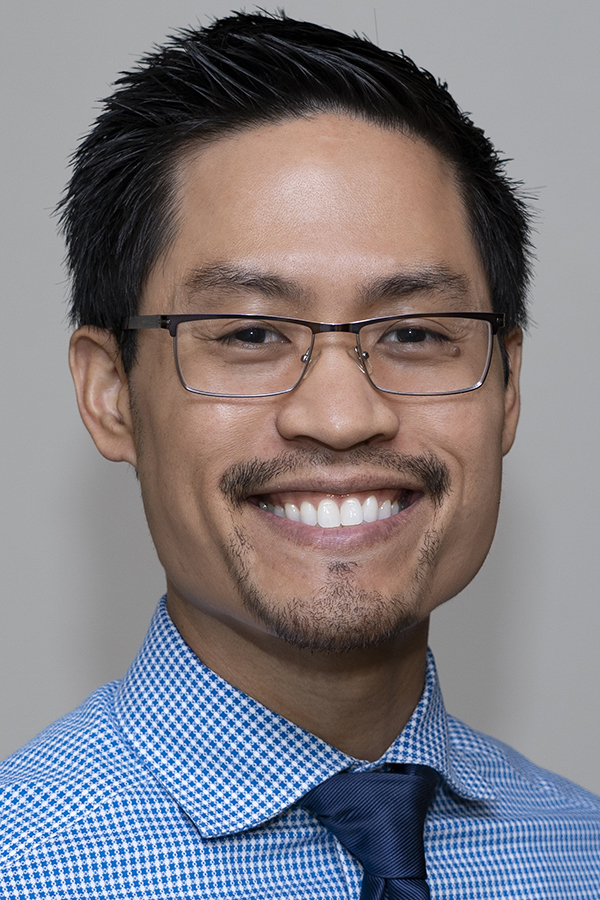
Kevin Louie, MD
Medical School: Rowan University School of Osteopathic Medicine
Residency: St. Barnabas Hospital, Bronx, NY
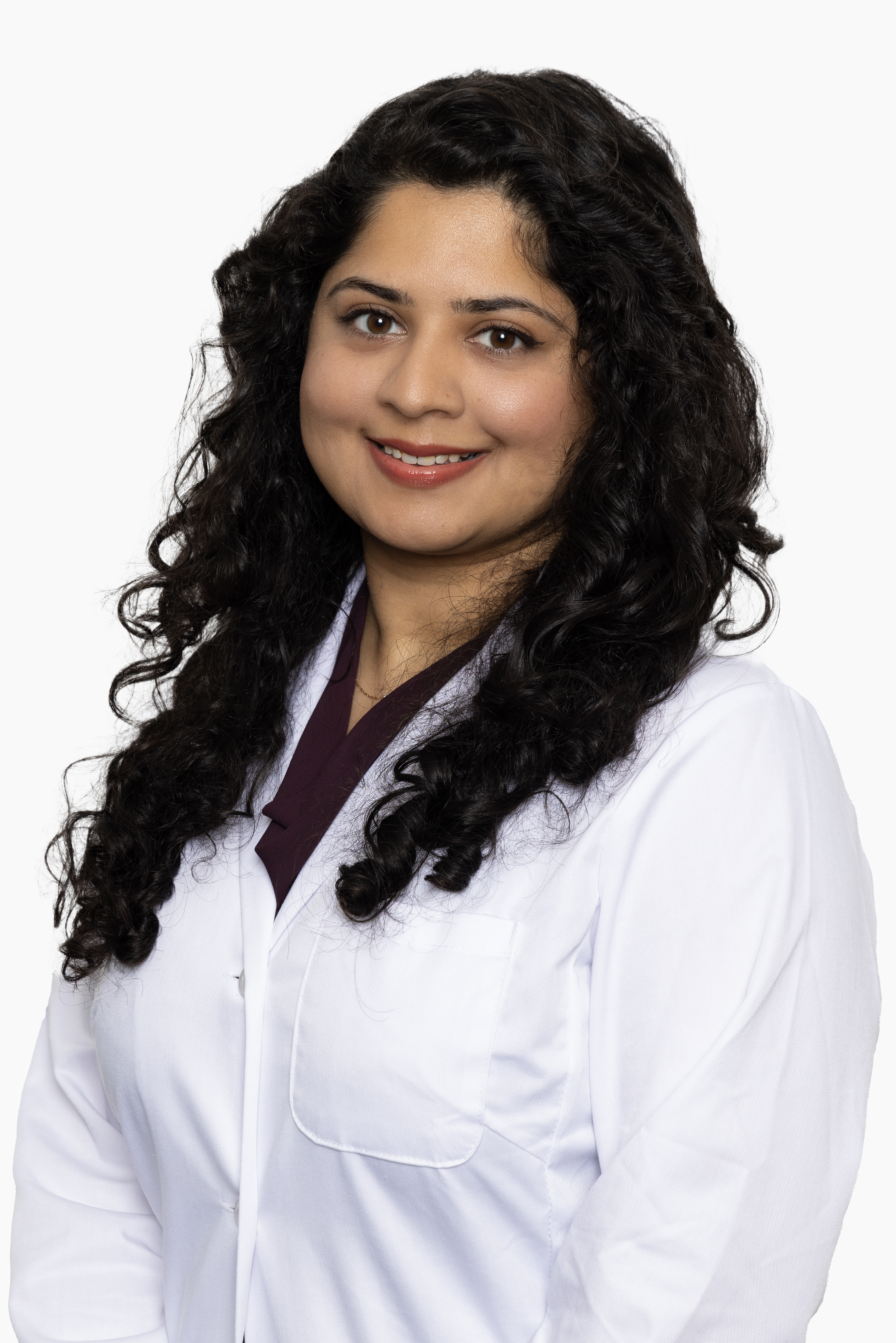
Syeda Sarosh Sohail, MD
Medical School: Aga Khan University Medical College
Residency: Montefiore Medical Center/Albert Einstein College of Medicine, Bronx, NY
Past Fellows - Academic Year 22-23
Gabriel Froula, DO
Medical School: University of Pikeville Kentucky College of Osteopathic Medicine
Residency: Orange Regional Medical Center, Middletown NY
Rebecca Lahamm-Andraos, MD
Medical School: American University of Beirut Faculty of Medicine
Residency: American University of Beirut Medical Center, Beirut Lebanon
Christina Sharon, MD
Medical School: American University of the Caribbean School of Medicine
Residency: Brooklyn Hospital, Brooklyn NY
David Ritz, DO
Medical School: Touro College of Osteopathic Medicine
Residency: St. Barnabus Hospital, Bronx NY
Past Fellows - Academic Year 21-22
Mary Rebecca Jane Chavez, MD
Medical School: University of New Mexico School of Medicine
Residency: General Surgery - Morehouse School of Medicine
Mohammad Choudhary, MD
Medical School: King Edward Medical University
Residency: SUNY Health Science Center at Brooklyn Program (Surgery - General)
Guillaume Daoust-Lafond, MD
Medical School: Université de Montréal Faculté de Médecine
Residency: General Surgery (University of Ottawa - Canada)
Sergejs Stepanovs, MD
Medical School: Wayne State University School of Medicine
Residency: General Surgery - Marshfield Clinic-St. Joseph's Hospital
Past Fellows - Academic Year 20-21
Michelle Bravo, MD
Medical School: Warren Alpert Medical School of Brown University, Providence, RI
Residency: Westchester Medical Center, Valhalla NY- General Surgery
Douglas Evan James, MD
Medical School: Tulane University School of Medicine
Residency: State University of New York, Downstate Medical Center Brooklyn NY- General Surgery
Ryan S Lindborg, MD
Medical School: Indiana University School of Medicine
Residency: New York Methodist Hospital Brooklyn NY- General Surgery
Bardiya Zangbar Sabegh, MD
Medical School: Shiraz University of Medical Sciences
Residency: State University of New York, Downstate Medical Center Brooklyn NY- General Surgery
Past Fellows - Academic Year 19-20
Mohammed Almzayyen, MD
Medical School: University of Vermont Larner College of Medicine
Residency: Vanderbilt University Program (Surgery - General) - Vanderbilt University Medical Center
Gaby Karim Jabbour, MD
Medical School: University of Balamand Faculty of Medicine and Medical Sciences
Residency: General Surgery - General - Hamad Medical Corporation
Kyle Litow, DO
Medical School: New York Institute of Technology College of Osteopathic Medicine
Residency: Hospital - Surgery-General Residency (General Surgery - General) - Larkin Community Hospital
Florian Radu, DO
Medical School: New York Institute of Technology College of Osteopathic Medicine
Residency: FLUSHING-Surgery - Flushing Hospital Queens
Past Fellows - Academic Year 18-19
Joshua Klein, DO
Medical School: Nova Southeastern University, Fort Lauderdale, FL
Residency: Hackensack University Medical Center, Hackensack NJ- General Surgery
Ryan Malcom, MD, FACS
Medical School: University of Illinois College of Medicine Champaign-Urbana and Rockford, IL
Residency: Rush-Presbyterian-St. Luke’s Medical Center and Cook County Hospital- Chicago, IL- General Surgery
Ida Molavi, MD
Medical School: University of British Columbia, Vancouver, BC
Residency: University of Saskatchewan College of Medicine, Saskatoon, SK - General Surgery
Seungwhan Pee, MD
Medical School: Chungnam National University College of Medicine, South Korea
Residency: Westchester Medical Center Valhalla NY- General Surgery
Past Fellows – Academic Year 17-18
Chiaka Abara, MD
Medical School: Geisel School of Medicine at Dartmouth
Residency: Drexel University College of Medicine/Hahnemann University Hospital Program - General Surgery
Johns Hopkins University/University of Maryland Program – Plastic Surgery
Michael Smith, MD
Medical School: Lake Erie College of Osteopathic Medicine
Residency: St. Barnabas Hospital – General Surgery
Jennifer Q To, MD
Medical School: Rowan University School of Osteopathic Medicine
Residency: St Joseph's Hospital & Med Center - General Surgery